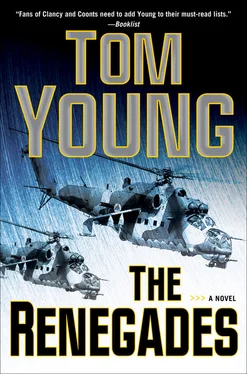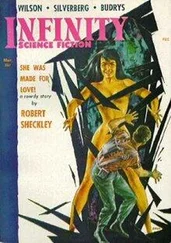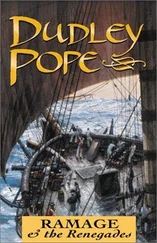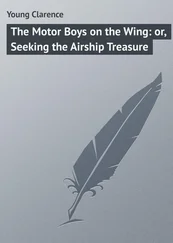I’d whine, too, if I had that dog’s job, Parson thought. Or maybe she just doesn’t like riding in helicopters any more than I do.
Parson turned off his Blue Force Tracker so its emissions wouldn’t interfere with the helicopter’s electronics. Then he pulled his laptop out of his helmet bag and turned it on. When it booted up, he left-clicked to open a moving map display. A tiny airplane icon in the center of the screen rested atop a blue circle that represented the Mazar airfield. As the flight progressed, the airplane would fly across the moving VFR chart.
Rashid and Aamir had to navigate the old-fashioned way, with a paper chart, NDB bearings, and VOR radials. Parson felt tempted just to hand up the computer, but that would have turned into a crutch. He was supposed to let them use what was installed in the aircraft.
When the helo lifted off, it flew smoothly for several seconds, and Parson began to hope the forecast and his instincts were wrong. Then a gust slammed the aircraft as if it had flown into a wall. Parson’s seat belt dug into his gut. His headset slipped, and he had to readjust it over his ears. The Mi-17 rose through air filled with stones and potholes.
Aamir was flying, and not doing a bad job for the conditions. He held attitude and rotor pitch for the climb, and he didn’t try to chase a certain speed. If you couldn’t stay out of turbulence, at least you shouldn’t make it worse by yanking around your aircraft.
When the chopper leveled, still rocked by a tormented sky, Parson noticed a whiskey-stained haze softening all shapes on the ground. At lower altitudes, enough dust rode the wind that it colored the air itself.
The Mi-17 flew as a single ship; the Hinds were escorting other missions deemed higher risk. That was too bad. Parson liked having the gunships close by—not so much for their guns as for their cabins. If one chopper got forced down, another could land and pick up its crew. Good insurance when you could get it, but making do in less-than-ideal situations was just part of military life.
Parson waited for the opaque chatter to clear from the interphone and radios. Then he pressed his talk switch and said, “Good job, copilot.” He knew Aamir spoke no English, but he wanted to encourage him anyway. Rashid uttered about four words in Pashto. Translating the compliment, Parson assumed. Aamir did not respond.
A lunar landscape passed below. Dry seams and folds of hills flowed underneath the helicopter. Eventually, a ribbon of green relieved the lifelessness on the ground; grass and brush marked the course of a mountain creek that meandered along a valley.
Rashid had his chart out now. Good. And Aamir fiddled with the nav radios. Not so good. He should have let Rashid do that for him. Sometimes these guys didn’t make enough distinction between the pilot flying and the pilot monitoring. The PF was supposed to fly the aircraft; nothing else. The PM was supposed to do everything else: handle the radios, navigate, work out systems problems with the engineer.
Parson decided not to say anything. Aamir wouldn’t understand him anyway, and Rashid should take care of it himself. Parson wanted to do his job as an adviser without undercutting Rashid’s authority as aircraft commander. And rattling along in this damned turbulence didn’t make it easier to work on the fine points.
The two urban rescue guys looked sick. Reyes twisted in his seat to scan outside, his rifle sling wrapped around his arm, the weapon’s muzzle pointed to the floor. Rashid and his crew kept talking in Pashto. Although Parson had no idea what they were chatting about, he hoped Rashid was saying “Keep your paws off the radios.” However, that shouldn’t have taken this much discussion.
Parson checked his moving map. The airplane cursor crawled in an easterly direction, but not quite the heading he would have expected. He hadn’t plugged in all the waypoints; Rashid knew how to navigate, and Parson didn’t want to insult his intelligence.
Rashid and Aamir were still talking. Sharif, in the flight engineer’s seat, fell silent. In the back, the crew chief kept looking toward the cockpit. He seemed more worried about the pilots than about manning his gun. What the hell was all the yammering about? Parson knew the Afghans had a joke about advisers like him: If you speak three languages, you’re trilingual. If you speak two, you’re bilingual. If you speak only one, you’re American. Now he wished he’d never let Gold out of his sight. A bonehead idea from the start.
“Hey, Rashid,” Parson asked on interphone. “What’s wrong?”
No answer for a moment. Then Rashid said, “Wrong radial, I think.”
He had to be kidding. To Parson, an old navigator down to his marrow, the first step toward not being an idiot was knowing where you were. Now he was ticked off at those two—and at himself for not backing them up. They should have worked out an MRR—minimum risk routing—and done a good study of that route. Rashid knew how to do that; he’d done it a hundred times.
“They gotta be bullshitting me,” Parson said, off interphone. “Whiskey tango foxtrot.”
Reyes turned around. “What’s the matter, sir?” he asked.
Still off interphone, Parson answered him: “I think they’re lost.”
Reyes frowned. It occurred to Parson that you didn’t need to be a pilot to know this wasn’t supposed to happen. Ever. But if it did, there was only one thing to do—climb and confess. He unbuckled his seat belt, got up, and looked over the flight engineer’s shoulder.
“Rashid,” Parson said, this time on interphone, “tell him to leave the radios the fuck alone and get some altitude.”
In the next instant, the helicopter banked so aggressively, Parson felt himself grow light in his boots. The crew shouted phrases that told him nothing. His mind struggled to understand what was happening.
Rashid grabbed the cyclic on the pilot’s side. He was fighting his copilot on the controls.
Aamir gripped the cyclic on the copilot’s side with his left hand, drew a Makarov pistol.
“Tah yaw bandee yeh,” he yelled.
Sharif grabbed Aamir’s pistol arm, pulled it down toward the floor. The helicopter turned hard to the left. Parson lost his footing and stumbled to his knees. Felt his kneecaps whack against steel. Then the Mi-17 veered right.
The Makarov fired. Sharif screamed as blood spewed from his thigh.
Parson groped for a handhold. Struggled against the turbulence and the pain in his knees to get up.
The chopper skimmed just above a rock chimney that towered over a gorge. More stone spires loomed ahead. Rashid punched at his copilot, wrested the cyclic away from him. Then Rashid banked to avoid the rock formation. Sharif slammed Aamir’s arm into the center console, and the Makarov clattered to the floor.
The two pilots were fighting over which direction to fly, Parson realized. Aamir wasn’t trying to crash the chopper; he could have done that pretty quickly. He apparently wanted to commandeer it. Without Gold here, Parson couldn’t tell what exactly was going on. A jihadist had once tried to bring down Parson’s C-5 Galaxy. The man was a patient on that aeromedical flight with Gold, an Afghan thought to be a trustworthy police officer. When allowed into the cockpit, he’d pulled fire handles to shut down the engines.
But this was something else. Parson could figure out the details later, but whatever it was, this madness had to stop right now. He unsnapped his pistol holster, tried to stand. Turbulence punched the chopper again and sent Parson reeling backward.
The nose of the Mi-17 dipped. Aamir grabbed the cyclic and tried to yank it to the left. The aircraft skimmed along a valley floor as the pilots fought. Ahead, an evergreen stood by a bend in a stream.
Читать дальше












